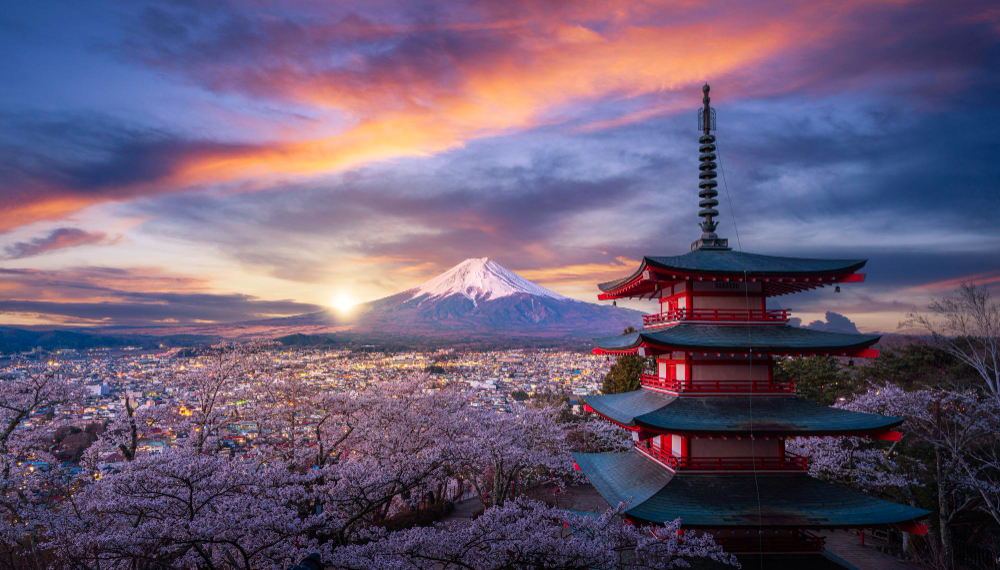
Japan is emerging as a distinguished destination in the global medical tourism landscape, blending advanced medical technology with centuries-old traditions of wellness and precision care. Renowned for its innovation, cleanliness, and disciplined healthcare system, Japan attracts international patients seeking safe, reliable, and high-quality medical services. Key urban centers like Tokyo, Osaka, and Fukuoka are equipped with ultra-modern hospitals, many of which are globally accredited and staffed with highly trained, multilingual professionals.
Japan’s unique medical appeal lies in the intersection of cutting-edge innovation and holistic wellness. Patients visiting Japan not only benefit from world-class diagnostic and treatment capabilities but also experience a deeply respectful approach to care that honors privacy, dignity, and cultural sensitivity. From cancer therapies and robotic surgeries to regenerative medicine and longevity-focused programs, Japan is quickly positioning itself as a leader in specialized, premium medical services.
Japan excels in high-precision and high-complexity medical procedures. It is internationally recognized for its achievements in oncology, cardiovascular care, organ transplantation, and robot-assisted surgery (such as the Da Vinci surgical system). The country is also a pioneer in regenerative medicine, offering advanced treatments using stem cell therapy and personalized cellular immunotherapy.
Cosmetic surgery, orthopedic procedures (such as joint replacement and spine surgery), and ophthalmology (including LASIK and cataract surgeries) are increasingly popular among international patients. Additionally, Japan is famed for its anti-aging programs, longevity clinics, and wellness diagnostics that offer deep insights into preventative health, supported by high-tech imaging and full-body scans.
Japan’s hospitals typically offer transparent pricing, meticulous attention to hygiene, and individualized care pathways that meet global standards. The cost of procedures in Japan is higher than in some Asian countries but often lower than in Western nations, especially when considering the exceptional quality, safety, and reliability offered.
Japan is accessible via major international airports such as Tokyo Narita, Haneda, Osaka Kansai, and Fukuoka Airport. Many airlines provide direct flights from the U.S., Europe, Asia, and the Middle East. While Japan's visa process can be more stringent than in some other countries, it offers medical visas for international patients and their companions through accredited medical institutions.
Hospitals catering to foreign patients often provide multilingual concierge services, including English, Chinese, and Korean. Dedicated international patient departments handle everything from airport pickup and hotel accommodation to translation and scheduling. Many private hospitals offer luxury recovery suites and personalized services.
Cultural considerations are seamlessly incorporated into patient care—whether it’s dietary preferences, gender-sensitive care, or spiritual support. The healing environment extends beyond hospital walls, with access to traditional onsen (hot spring) therapy, Japanese Zen gardens, and nutritious cuisine, all contributing to recovery and rejuvenation.
Japan’s healthcare system is governed by the Ministry of Health, Labour and Welfare, which maintains one of the most stringent regulatory environments in the world. Medical institutions adhere to strict licensing, infection control, and clinical quality benchmarks. Several hospitals serving international patients are JCI-accredited or certified by Japan’s own Japan Medical Services Accreditation for International Patients (JMIP).
Patient rights, informed consent, and privacy are upheld rigorously. Japan’s legal system provides avenues for medical recourse, though incidents of malpractice are extremely rare due to the country's culture of precision and accountability. Follow-up care is emphasized, with many hospitals offering remote consultations, rehabilitation services, and customized recovery plans.
Japan offers a uniquely refined and trustworthy medical tourism experience, characterized by high-end technology, deep-rooted ethics, and a holistic vision of wellness. For patients seeking complex procedures, diagnostics, or rejuvenation, Japan delivers a seamless combination of precision medicine, cultural richness, and exceptional safety standards. The country's commitment to patient dignity, alongside its scenic beauty and tranquil recovery environments, makes it a top-tier destination for international health seekers.
1. Why choose Japan for medical treatment?
Japan offers world-class medical care, high safety standards, and advanced technology.
2. What treatments is Japan known for?
Japan excels in oncology, heart care, robotic surgery, regenerative medicine, and anti-aging programs.
3. Is it expensive to get medical treatment in Japan?
Costs are moderate—higher than in some Asian countries, but lower than in Western nations for similar quality.
4. Do Japanese hospitals speak English?
Yes, many hospitals have English-speaking doctors and staff for international patients.
5. Can I get a medical visa for Japan?
Yes, Japan offers a medical visa through approved hospitals for patients and companions.
6. How do I travel to Japan for treatment?
Major airports in Tokyo, Osaka, and Fukuoka have direct international flights and hospital pickup services.
7. Is it safe to have surgery in Japan?
Yes, Japan has strict medical regulations and very low rates of medical errors.
8. What recovery options are available in Japan?
Hospitals offer post-treatment care, rehabilitation, and even hot spring therapy for recovery.
9. Will my cultural or religious needs be respected?
Yes, hospitals can provide halal food, gender-sensitive care, and prayer facilities when requested.
10. Are there international accreditations?
Yes, many hospitals are JCI-accredited or certified by JMIP for international care standards.